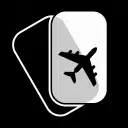5G and Airplanes: Your Top 4 FAQs
They connect people from across the world and bridge the gap between communities and cultures, albeit in very different ways. We use them for business and leisure, and they’ve become intertwined in ways once thought impossible. We’re, of course, talking about 5G and airplanes.
Short for the “fifth generation mobile network,” 5G is now the global standard with faster data speeds, low latency and a more reliable network. This new technology has spurred more than $13 trillion in global economic output, according to a Qualcomm economic impact report.
However, since its inception, 5G has also sparked concerns over potential interference with airplanes. These concerns fuelled a lengthy debate over aircraft safety between the FAA and telecommunications giants across the United States. But does 5G interfere with the safety equipment onboard aircraft? And what is the FAA doing to keep people safe in the skies?
Here are the answers to four of private fliers’ most common questions about 5G and airplanes.
1. Does 5G interfere with airplanes?
Signals from 5G don’t interfere with the airplanes themselves, but the radio altimeter–a critical piece of safety equipment that measures the distance between the aircraft and the terrain below.
While some other countries with 5G networks have seen no impact on aircraft, the U.S. has the most complex and regulated airspace in the world. Other countries also have different networks that, in some cases, feature lower power levels and different frequencies.
2. How does 5G affect radio altimeters?
While 5G has been around since 2019, carriers only recently began to use C-Band frequencies similar to those used by a radio altimeter.
The FAA is studying the impact of these frequencies. To keep planes and passengers safe, carriers and the FAA previously agreed on creating exclusion zones near airports to avoid any potential complications from 5G C-Band signals. In January, the FAA proposed that all passenger and cargo aircraft will require 5G C-Band-tolerant radio altimeters in 2024.
According to Reuters, both Verizon and AT&T have agreed to delay “some C-Band usage in their 5G networks until July 2023.”
3. Does 5G interfere with airplanes in Europe?
No. The 5G networks available in most European countries use lower frequencies than the 5G C-Band in the United States. C-Band offers significantly faster browsing speeds and a wider coverage area compared to 4G or even standard 5G networks.
4. How will 5G impact transportation?
Improved networks can supercharge the transportation industry. From improving fleet management services for aircraft operators to enhanced tracking capabilities, 5G can lead to a better, more streamlined and safer private aviation experience.
At Stratos, we advocate for your safety and always invest in the best personnel, training and technology in the industry. Want to learn more about 5G and airplanes or how our skilled and professional team supports your private aviation needs? Reach out to our private flight advisors at 1-888-593-9066 to get started.
Are you ready to book your Geneva and Paris charter flight yet?
Our friendly, expert air charter agents are here to answer questions or start your quote today. Don`t wait, call now and we'll get you on your way to your destination!
Call 888-593-9066











